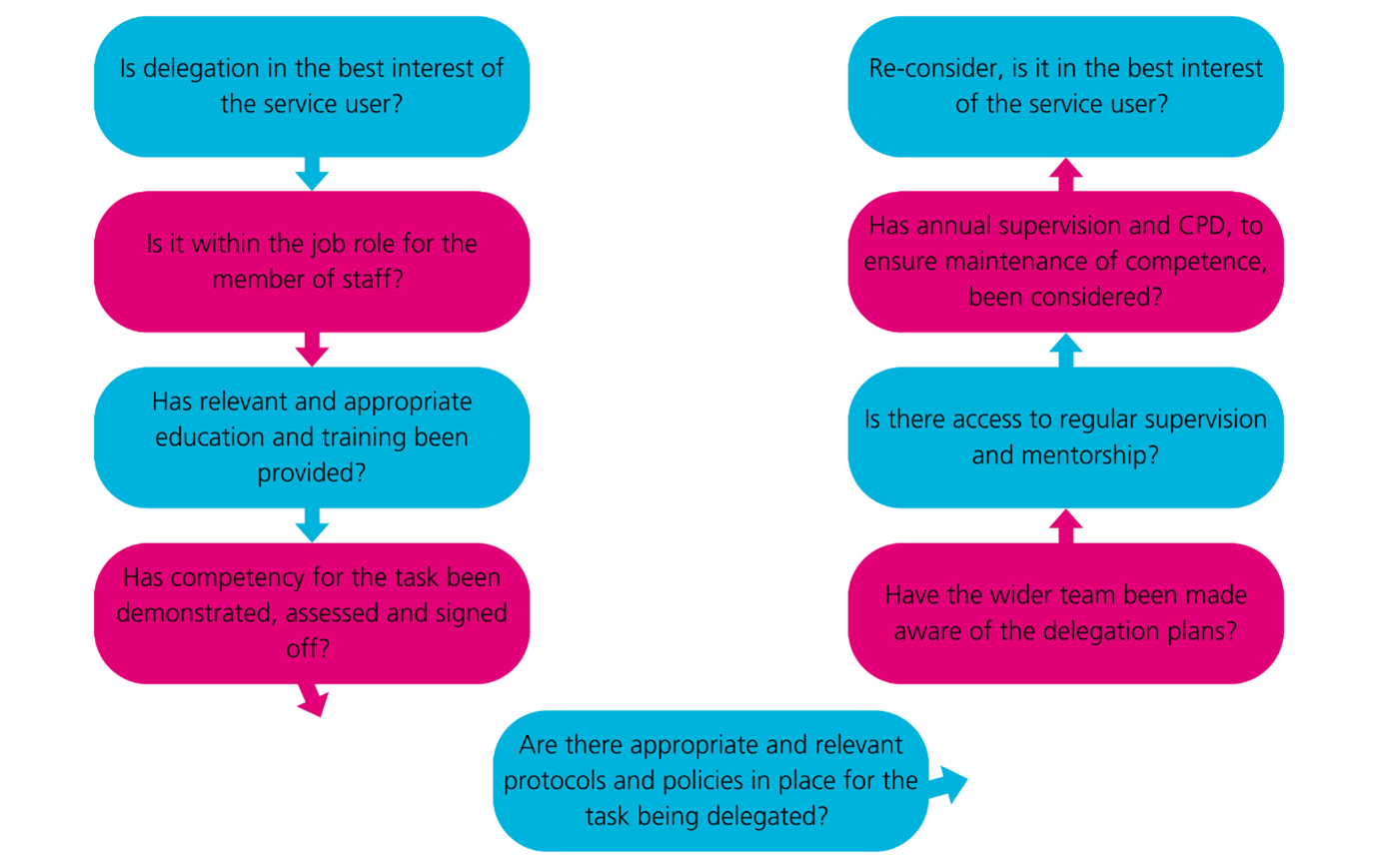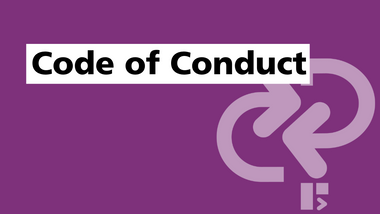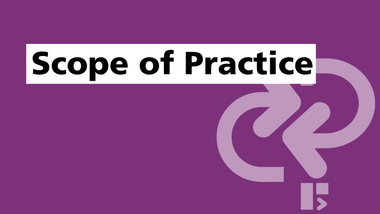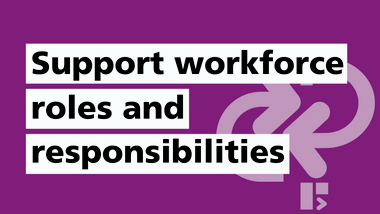The dietetic team is a collective of different people, in different roles, bringing with them a range of knowledge, skills and capabilities. Whilst a registered dietitian has the overall responsibility for the dietetic care provided to a service user, in many cases they cannot undertake every task, intervention or activity, and they are required to delegate aspects of dietetic care to colleagues. The BDA Code of Professional Conduct sets out what is expected of members in relation to accountability and delegation.
This information provides guidance on the principles of accountability and delegation and is relevant to all members of the dietetic workforce, whether you're a registered dietitian, a member of the dietetic support workforce or a dietetic student. This information aims to support safe practice and provide practical guidance on how you can apply these principles.
Accountability
Accountability means that organisations and individuals are responsible for their actions. Being accountable means being responsible for your actions and being able to confidently explain and justify the decisions that you make in your role. This includes being able to admit when you make a mistake. Depending on the situation, there are various ways an organisation or individual may be held to account:
- healthcare organisations are accountable to the criminal and civil courts if they breach their legal duties
- individuals working in healthcare organisations, are accountable under the duty of care principle. Duty of care is a legal responsibility to provide care to a reasonable standard and to keep service users safe. Duty of care exists when it could reasonably be expected that a person’s actions, or failure to act, might cause injury or harm to another person
- individuals are accountable to their employer to perform their contractual duties under employment law
- individuals are accountable to their professional standards and regulatory codes (e.g., HCPC Standards, BDA Codes of Conduct)
All members of the dietetic workforce are accountable for any actions they undertake in their role. It is therefore important that you are clear on the following:
- your scope of practice
- your roles and responsibilities, reflected in your job description
- the organisation protocols, policies and procedures to which you must adhere.
It is important to understand the principle of accountability when deciding upon tasks to be delegated, and when accepting tasks delegated to you.
Delegation
Delegation is the process where work is allocated by one person, the delegator, to another, the delegatee. The process of delegation establishes, at a particular point in time and in a particular context, the tasks, activities and responsibilities which may be safely and appropriately allocated to another individual. It is a complex professional task and should be undertaken by those with the appropriate skills, knowledge and experience in the specified area of practice.
Delegation happens at all levels of the workforce between different professionals, examples of this include:
• one registered professional to another
• a registered professional to a member of the support workforce
• an assistant practitioner to a support worker
• a healthcare professional to a carer or family member
It is important to understand and adhere to the principles of delegation, which are the same regardless of the professionals involved.
HCPC Standards
Delegation is integrated within the HCPC Standards of conduct, performance and ethics, which all Dietitians in the UK agree to adhere to:
- 4.1 You must only delegate work to someone who has the knowledge, skills and experience needed to carry it out safely and effectively.
- 4.2 You must continue to provide appropriate supervision and support to those you delegate work to.
Appropriate Delegation
When tasks are delegated appropriately and effectively, improvements can be seen with service user care and efficiencies within teams and the wider organisation. A key focus within dietetics is the delegation of tasks from a Registered Dietitian to an unregistered member of the Support Workforce.
For appropriate delegation, there are key responsibilities for the delegator, and the delegatee:
Delegator responsibilities
- ensure delegation of the task is in the best interests of the service user
- ensure the activity or task is within the scope of practice of the delegatee, which means they are appropriately trained, competent and confident to perform the task or activity
- ensure all education and training is provided and appropriately recorded
- ensure the delegated task is within the scope of their role, and it is included in their job description
- to assess, plan and evaluate the task to be delegated
- identify, manage and mitigate any risks associated with the delegated task
- ensure regular supervision and feedback is provided, which is appropriate to the task being delegated, and outlines any concerns or issues that may have arisen
- ensure clear and appropriate guidelines, processes and protocols are in place, which includes reporting and escalation
- ensure understanding of their own accountability within the delegated task or activity
Delegatee responsibilities
- ensure it is within the scope of their role to undertake the task or activity
- ensure the activity or task is within the scope of their practice, which means they are appropriately trained, confident and competent to perform the task or activity
- ensure they are clear about the task or activity that is being delegated, and understand what is being asked of them
- ensure they undertake all necessary education and training to achieve and maintain competency in the delegated task or activity and maintain an accurate record of this.
- be competent and confident to make the necessary decisions related to the delegated task, following local policies and protocols as directed
- ensure they have read and understood all relevant guidelines, processes and protocols related to the task or activity, which includes requirements for reporting and escalation
- engage in supervision, and feel confident to raise any issues or concerns, or request additional information or support
- ensure awareness of their own accountability within the delegated task or activity.
Deciding on delegation
When deciding if a task is suitable to be delegated to a member of the support workforce you should consider the following questions to ensure that the above principles of delegation are being met:

Delegating can improve service user care and the efficiency of teams when it is done appropriately.
When delegating any task, it is important for the delegator to ensure that the task is delegated appropriately and to understand that they remain accountable for their decision to delegate. When tasks have been appropriately delegated the responsibility of completion of the task lies with the delegatee, and they have a duty of care to that service user for the task.
Supporting Resources
A suite of resources have been developed to support members to implement the principles of accountability and delegation:
- Accountability and Delegation Guidance: The information contained within this webpage has been incorporated into a handy document which you can downloand and print.
- Blank competency assessment template: This can be used as a template to develop written competencies within your team or department. It is intended as a guide only. You should refer to any local policies which govern competency development within your service.
- The following are examples of documented competencies for a variety of nutrition and dietetic skills. It is intended as a guide only. You should refer to any local policies which govern competency development within your service, and review the knowledge and skills to ensure they meet the needs of your service.
- Accountability and delegation case studies: you can view four case study examples of accountability and delegation being undertaken in practice.
Useful links:




